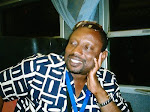 |
| One of Aina's students, Mehria Aziz, co-directed the Emmy nominated Afghanistan Unveiled [Reza Deghati] |
Reza, who goes only by his first name, has spent 25 of his 30-year
career as a photojournalist in war zones. In that time, he noticed the
real cost of war - the destruction of cultures and of human relations.
He then noticed that in Afghanistan - where he's spent a lot of time
since the early 1980s - most NGOs tend to focus on rebuilding the things
that have been physically destroyed by bombs. In other words, schools
were built, but little attention was paid to where the education
provided in those buildings would come from.
Motivated by a heady mixture of frustration and hope, in 2001 Reza - a
celebrated Paris-based photojournalist and documentarian for National
Geographic - sold off some of his own prints and equipment to kick off Aina
(Farsi for "mirror"), a program aimed at providing media media training
to women (whose stories he said male foreign correspondents could not
tell) and educational material to children.
In the decade that has past, Aina has trained at least 500 Afghan
women in audio and video techniques, teaching them how to report,
photograph and document their own lives. Aina has also produced an
educational magazine, Parvaz (pronounced Par-vaaz and no relation to this writer) and completed pilot projects in Sri Lanka, Uganda and more.
Reza, who had started informal photography training in Pakistani
refugee camps in 1983, spoke to Al Jazeera when he was at the World
Innovation Summit for Education in Doha, Qatar, participating on the
"Learning from Game Changers" panel.
Parvaz: Tell us about your first trip to Afghanistan - what was the situation like then?
Reza: The fist time was in 1983, when Afghanistan was occupied by the Russian army. I was working for Time
magazine at the time ... During the Russian invasion, Afghanistan was
still a really old, traditional country, and the Russians were really
trying to emancipate Afghan women, and this was the biggest mistakes the
Russians made. They tried to push women to the front too fast, and it
created a lot of reactions [among] the people.
Parvaz: Then you kept going back.
Reza: I kept going back. I was there for the
collapse of the Russians and the pro-Russian government, and I went
there many times during the time of the Taliban, all during times of
war. And this was not only a photographer, In 1990, I worked as the
director of operations for the United Nations in Afghanistan, so I was
very engaged with the condition of women there.
Parvaz: Does what's being reported about the state of Afghan women comport with what you're observing on the ground?
Reza: First of all, even the female journalists
coming from the outside and trying to work with Afghan women, they are
not really allowed to enter the intimate lives of the women because they
are somehow always surrounded by male drivers, male interpreters, male
security - that's whey even foreign women don't have a chance to
intimately understand Afghan women.
The only way to have the stories told was to train Afghan women
themselves. And through their eyes, we were able to hear and see much
deeper stories.
Parvaz: So there's no reluctance for these women to tell their stories, they just need the right way to tell it.
Reza: They need to be able to really work with
people who they trust. When we train women there, they work with other
Afghan women. And they have all suffered the same things.
Parvaz: The US invaded/occupies Afghanistan for a number
of stated reasons, one of them to improve the state of human rights in
the country, especially for women. Have things improved for women there?
Reza: The way that foreign countries came and
started to emancipate women was wrong. For them it was "Hey, everybody,
let's take off the burqas and go out onto the street. Even better with a
miniskirt." This is the concept of freedom that was shown to them by
international organisations, while we know how many generations it takes
to bring cultural change to a country.
They don't want miniskirts, but they want rights - they want to be
educated, they want access to jobs, they want equality. But all this,
when you look at the Afghan culture, it takes time ... When Afghans see
women in Bermuda shorts, wearing sleeveless shirts and no bra, talking
to men on American military bases, they ask me: "Is this democracy?"
Parvaz: Has the situation for women improved, and how, specifically?
Reza: Yes.They're not living under the Taliban now and they have more economic comforts.
There are more women getting educated, and what my organisation is
doing is training as many women as possible to enter communication and
information centres.The effects of this will show in two or three
generations, when more and more women will be running media
organisations. And what they are writing, producing and broadcasting now
comes from Afghan women, and they know how to spread their words and
their education ...even if the Taliban come back into power, these
women are there as the seeds of the resistance.
Parvaz: What is the future for women in Afghanistan?
Reza: It will be very tough. They were given false
signals by the coalition forces that they would get freedom - [the] same
for Afghan men, but women suffered more. Aina will stay there after US
forces leave - I've been there for 30 years. I've seen Russians coming
and leaving; I've seen Taliban coming and leaving, I've seen al-Qaeda
coming and leaving, I've seen Pakistan's army coming and leavin
http://english.aljazeera.net/indepth/features/2011/11/201111425558372171.html | |







